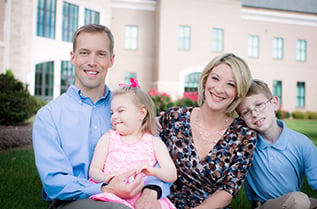This panel of 75 genes intended for patients with a diagnosis or clinical suspicion of a Lysosomal Storage Disease (LSD) and is performed by Next Generation Sequencing (NGS).
8 weeks
81443
$3,500
This comprehensive panel consists of 75 genes related to lysosomal storage diseases and conditions with similar clinical phenotypes. Common clinical features for these disorders include: Microcephaly/Macrocephaly Hepatomegaly Short stature Joint Stiffness Deafness Abnormal skeletal survey Coarse features Macroglossia Abnormal MRI Sleep Apnea Seizures Behavioral problems Ocular Anomalies Intellectual disability or Developmental Delay Hypotonia Spasticity/dystonia Ataxia/poor coordination
This panel may be particularly useful -for patients with a suspected storage disease in whom other enzyme testing and single gene analysis has been normal -for patients with a non-specific "storage-like" presentation who do not fit the typical phenotype for a specific disorder For patients with a specific suspected storage disease, enzyme analysis or individual gene sequencing should be considered first.
Next Generation Sequencing
The current design of this panel covers all genes and the flanking intronic sequences. This method allows for analysis of greater than 98% of the targeted sequence for the detection of nucleotide substitutions and small deletions and duplications. Large deletions and duplications will not be detected by this panel. Mutations and variants identified on the panel are confirmed with Sanger sequencing. All novel and apparently pathogenic changes are reported when found within the coding region as well as within 10 basepairs of each intron/exon boundary for each gene. Promoter and 3' untranslated sequences are not included in the current analysis. It should be noted that the current protocol is not specifically designed to detect copy number alterations and single exon deletions may require additional follow-up to determine whether or not they represent technical artifacts. We recommend further array-based testing to more accurately address the concerns of dosage alterations. The Cytogenetic Laboratory at GGC offers a high resolution whole genome SNP microarray. The GGC Diagnostic Laboratory Directors are available for further consultation regarding the limitations of the NGS and array testing procedures.
The preferred sample type is 3-5 ml of peripheral blood collected in an EDTA (purple top) tube. Extracted DNA and saliva are also accepted for this test. Saliva samples must be submitted in an approved saliva kit. Contact the lab to receive a saliva kit or to have one sent to your patient.
The specimen should be kept at room temperature and delivered via overnight shipping. If shipment is delayed by one or two days, the specimen should be refrigerated and shipped at room temperature. Do not freeze the specimen. Samples collected on Friday can be safely designated for Monday delivery.
If the pathogenic mutation(s) are identified in an affected individual using this panel, prenatal diagnosis is available for future pregnancies. Sanger sequencing will be used for prenatal diagnosis when there is a known familial mutation. Prenatal diagnosis can also be requested when there are clincial features and ultrasound findings suggestive of a diagnosis. Additional fees for cell culture and maternal cell contamination may apply. Maternal cell contamination studies are required for all prenatal molecular tests. Contact the laboratory prior to sending a prenatal specimen.
Call our laboratory at 1-800-473-9411 or contact one of our Laboratory Genetic Counselors for assistance.
Robin Fletcher, MS, CGC
Falecia Thomas, MS, CGC
Alex Finley, MS, CGC
